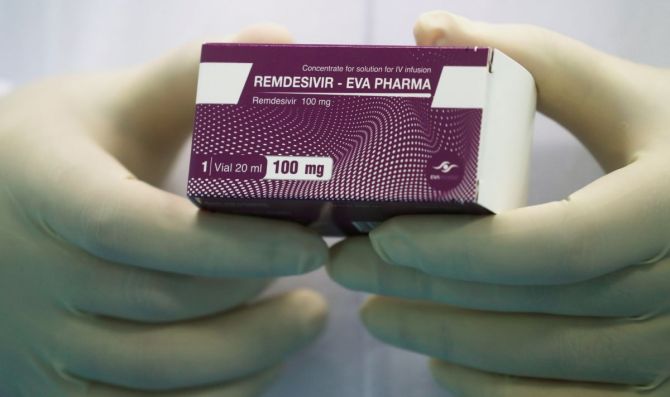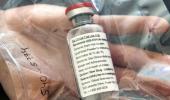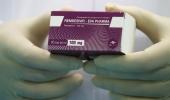Amid a steep spike in COVID-19 cases leading to increased demand for medicines for treating coronavirus, top health experts in the government on Monday said anti-viral drug remdesivir is "not a magic bullet" and does not reduce mortality.

Addressing the media, AIIMS Director Dr Randeep Guleria said remdesivir should only be given to patients hospitalised with moderate illness, who had a fall in oxygen saturation and have infiltrates on chest X-rays or CT-scan.
"Remdesivir is not a magic bullet and this is not a drug that reduces mortality. We may use it as we don't have a very good antiviral drug. It has a limited role and we should be very careful in its usage," he said.
"In major studies, remdesivir was shown to be useful only in those hospitalised patients with falling oxygen saturation and having infiltrates on chest X-ray or CT-scan. It was of no use if given early in mild and asymptomatic patients and also if administered too late," Dr Guleria said.
NITI Aayog member (Health) V K Paul said that remdesivir is not to be used in home settings and not to be procured from chemist shops.
Data from studies so far have shown that remdesivir does not have any effect in reducing the mortality in COVID-19, he said in support of Dr Guleria's remark.
"The health ministry in its 'Clinical Management Protocols for COVID-19' has recommended the use of remdesivir on COVID-19 patients in a moderate stage of the illness. The drug has been included as an 'investigational therapy' and recommended only for restricted emergency," Paul said.
Guleria also said studies have shown that plasma therapy has a limited role in COVID-19 treatment and is of not much use.
About the drug tocilizumab, he said the drug is required in less than 2 per cent of COVID-19 patients because it is only for cytokine storm. "It is to be given in the later stage of illness among those who have very high inflammatory markers and whose condition is worsening despite steroids, remdesivir and anti-coagulants."
"A majority of patients who have a mild COVID-19 or are asymptomatic will improve with just symptomatic treatment," Guleria asserted, adding the one drug that did show any benefit was steroids, but when to administer it is very important.
"Recovery trial showed that steroid has a harmful effect if given in an early stage of the disease before there is a fall in oxygen saturation."
As for antiviral drug favipiravir, Guleria said the data for its utility in treating COVID-19 is not very strong.
It has no effect on mortality and there is not much evidence to show that it is useful. It is not recommended for use in the National Clinical Management Protocol for COVID-19, he said.
"So, it is important to understand that by giving treatment when it is not required you may be doing more harm. I appeal to everyone to please follow protocols and give treatment in a rational manner," Guleria said.
Paul, over new research findings that COVID-19 spreads through air and not through droplets, said, "It is a dynamic situation for new learning ."
About precautions to be followed in the backdrop of the emerging information, he said masks play an important role in preventing COVID-19 spread and emphasised the need for good cross ventilation indoors, besides maintaining a physical distance.










